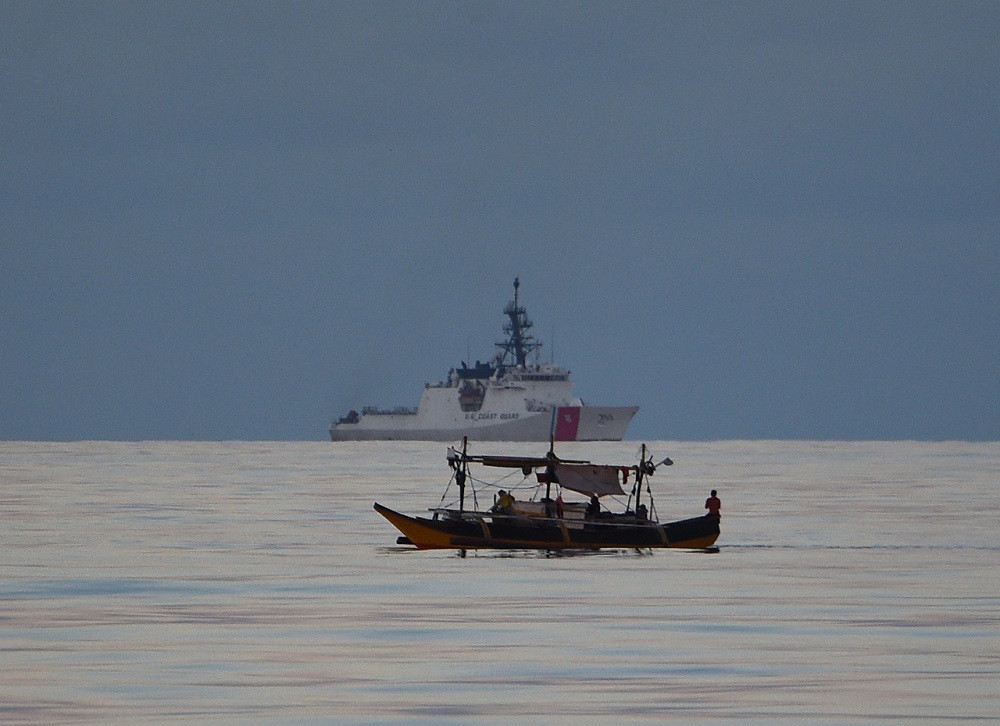CoC should prioritize protecting fishermen in South China Sea
Apart from the huge oil and gas reserves under the seabed and continental shelf of the South China Sea, fisheries are also an important and significant resource in the region.
Change Size

D
uring the last ASEAN Regional Forum, the foreign ministers of all member states once again reiterated that ASEAN and China should expedite negotiation over the Code of Conduct (CoC) in the South China Sea. In line with his ASEAN counterparts, Foreign Minister Wang Yi said in August that China expected the CoC to be finalized in 2021, despite all the obstacles during the pandemic.
However, some analysts share a pessimistic view of the time line. Even though all parties have said on many occasions that they were committed to negotiating the CoC, the ASEAN Secretariat has never said anything publicly on the substance of the expected CoC. Meanwhile, tension has increased in the South China Sea over the last several years amid the United States-China rivalry and increased militarization in the disputed area.
The CoC negotiation must consider a variety of aspects, but protection of fishermen and their livelihood deserves priority. Apart from the huge oil and gas reserves under the seabed and continental shelf of the South China Sea, fisheries are also an important and significant resource in the region.
Based on a report by the Centre for Strategic and International Studies in Jakarta, at least 12 percent of the global fish catch comes from the South China Sea, and around half of the world's fishing vessels operate there. Given the wealth of marine resources in the South China Sea, around 3.7 million people in the region work in the fisheries sector.
Unfortunately, fishermen have often had to work in a precarious environment due to the ongoing disputes over the marine territory. In the last several years, many Vietnamese and Filipino fishermen have been killed in standoffs with the coast guards or warships in the area.
A common guideline and principles in the CoC should therefore be agreed to avoid the law enforcement agencies of any disputing state from taking any actions that could lead to the death of fishermen. Furthermore, it is important to set down any limitations on law enforcement measures in the area to prevent skirmishes, including between national coast guards.
The United Nations Convention on the Law of the Sea (UNCLOS) already stipulates the common principles of non-use of force and peaceful use of the ocean. A more specific common guideline that all disputing parties agree on, however, would be more effective in avoiding any escalation of conflict.
Indeed, Article 73 of UNCLOS gives a coastal state the right to take law enforcement measures in its exclusive economic zone (EEZ), “including boarding, inspection, arrest and judicial proceedings, as may be necessary to ensure compliance with the laws and regulations adopted by it in conformity with this Convention”.
However, there are also some limitations to the measures a coastal state can take in the EEZ. For instance, UNCLOS mandates that “arrested vessels and their crews shall be promptly released upon the posting of reasonable bond or other security”, while the penalties a coastal state can impose “may not include imprisonment, in the absence of agreements to the contrary by the states concerned, or any other form of corporal punishment”.
In order to regulate the treatment of fishermen in the disputed area, the CoC could refer to the common guidelines on the treatment of fishermen in the undelimited maritime boundaries between Indonesia and Malaysia.
The two neighboring countries have signed a Memorandum of Understanding (MoU) on common guidelines regarding the treatment of fishermen by maritime law enforcement agencies in Malaysia and Indonesia. The MoU serves as a guide for enforcement measures regarding fishery issues to ensure the wellbeing of the two countries’ fishermen. The MoU also aimed to maintain good relations, close cooperation and mutual understanding between the signatories to avoid any tension in the disputed area.
Under the MoU, all fishing boats alleged to have illegally entered the jurisdiction of another coastal state will be promptly inspected and requested to leave the territorial sea, in particular vessels using illegal fishing equipment, such as those that employ explosive, electrical and chemical means. Inspections and requests to leave shall be reported promptly and expeditiously to the Focal Points to maintain open and direct communication between the maritime law enforcement agencies of the signatories.
Setting a common guideline on the protection of fishermen in the South China Sea can hopefully minimize potentially fatal incidents in the disputed area.
***
The writer is international law lecturer at the Faculty of Law, University of Indonesia (UI), and researcher at the UI Center for Sustainable Ocean Policy; holds a Master of Laws in International Law, Fletcher School of Law and Diplomacy, Tufts University.









